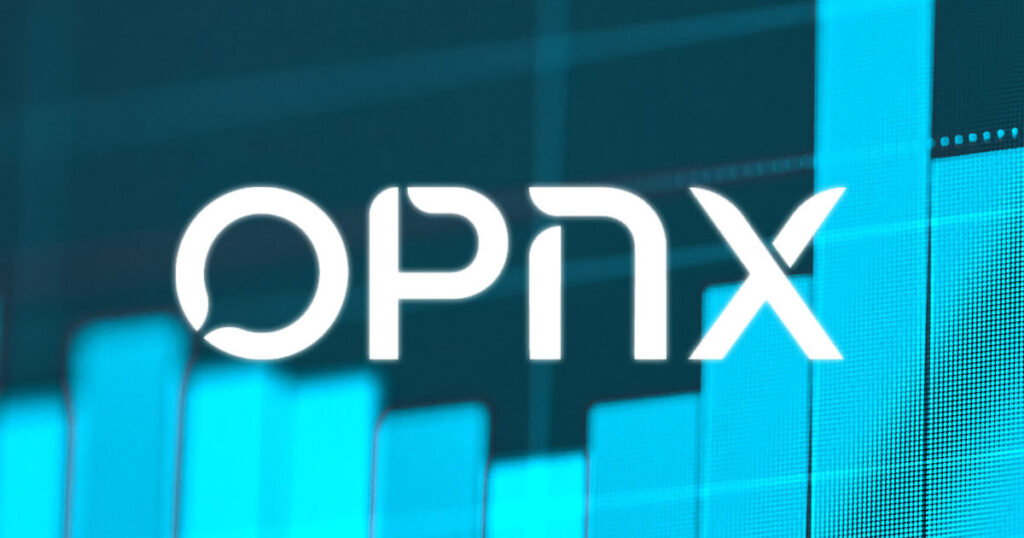CoinGecko has recently introduced a new index, the “Top Alleged Securities Coins,” which tracks the largest crypto tokens perceived as securities by the United States Securities and Exchange Commission (SEC).
This index organizes the selection of crypto assets based on their market capitalization.
Topping the list is BNB with a market cap of $243, followed by Cardano (ADA) at $0.292, Solana (SOL) at $23, and TRON (TRX) at $0.0765.
A spokesperson from CoinGecko informed Cointelegraph that the index was launched in early August.
It was created by compiling a list of the most prominent tokens that the SEC had classified as securities in previous legal battles.
Although the SEC currently identifies 68 tokens as securities in recent lawsuits against crypto exchange giants Coinbase and Binance, CoinGecko’s index lists only 24 of them.
According to CoinGecko’s data, the top tokens included in the SEC’s litigated remit account for approximately $84.9 billion of the entire crypto market, which represents around 7.5% of the total crypto market capitalization of $1.21 trillion.
SEC Chair Gary Gensler has been assertive in stating that the majority of crypto assets should be considered securities.
He previously expressed that “everything other than Bitcoin” falls under the SEC’s regulatory purview.
If Gensler’s stance is upheld, it would imply that nearly all of the approximately 25,500 cryptocurrencies listed on CoinMarketCap’s platform would come under the SEC’s regulation.
As regulatory scrutiny intensifies in the crypto space, CoinGecko’s new index sheds light on the tokens considered as securities by the SEC.
This development also raises concerns among crypto enthusiasts and market participants about the potential implications of broader regulation on the industry.
While the SEC aims to protect investors and ensure market integrity, the evolving regulatory landscape poses challenges and uncertainties for crypto projects and investors alike.
Market participants will closely monitor how this space evolves and how it impacts the future of cryptocurrencies as a whole.
Other Stories:
Coinbase CEO Affirms Commitment to US Amid Regulatory Uncertainty
U.S. Senators Call for Crackdown on North Korea’s Cryptocurrency Funding of Nuclear Program
Latvia Sees Decline in Crypto Asset Purchases Amidst Concerns Over Fraud and Money Laundering
Crypto lending platform Hodlnaut is making strides toward exiting bankruptcy with a potential white knight investor stepping in to offer a lifeline.
OPNX exchange has reportedly proposed to acquire 75% of the struggling company, subject to creditor approval.
The deal involves injecting approximately $30 million worth of FLEX tokens into Hodlnaut, which would partially cover creditors’ claims and outstanding payments.
FLEX tokens, the native currency of CoinFLEX exchange, were valued at $7.16 at the time of the report.
The restructuring process is currently being overseen by a Singapore court.
If accepted by the creditors, OPNX would gain a 75% stake in Hodlnaut post-capital infusion. Creditors, on the other hand, would receive either 30% of their claims in FLEX and other tokens or up to 95% of the available corporate assets pool on a pro-rata basis, depending on whichever option proves more lucrative.
These details were found in documents reviewed by Bloomberg.
Lam, a representative of OPNX, expressed optimism about the potential collaboration with Hodlnaut, praising the platform’s promise.
However, the final decision rests with the creditors, and the outcome remains uncertain. Back in April, the majority of Hodlnaut’s creditors had expressed their preference for liquidation over restructuring.
In a letter from the interim judicial manager (IJM), it was revealed that 55.38% of creditors, with claims totaling around 228.3 million Singapore dollars (approximately $170 million), were in favor of liquidation due to the absence of any fresh capital at the time.
Hodlnaut encountered a liquidity crisis in August 2022, prompting the suspension of withdrawals. To shield itself from legal actions, the platform was placed under judicial management under Singaporean law.
Hodlnaut had expressed its intention to avoid forced liquidation to prevent selling users’ cryptocurrencies, such as BTC, ETH, and WBTC, at a time when asset prices were significantly depressed.
OPNX, the potential savior, was founded by Mark Lamb and Sudhu Arumugam, who are also co-founders of CoinFLEX exchange.
The platform is powered by the FLEX token and includes other co-founders, such as Su Zhu and Kyle Davies, founders of the now-bankrupt hedge fund Three Arrows Capital. Zhu and Davies have been facing creditor pursuit in the United States concerning their bankruptcy proceedings.
The fate of Hodlnaut now hangs in the balance, with creditors having to decide whether to accept the deal proposed by OPNX or pursue liquidation as previously suggested.
Other Stories:
U.S. Senators Call for Crackdown on North Korea’s Cryptocurrency Funding of Nuclear Program
Latvia Sees Decline in Crypto Asset Purchases Amidst Concerns Over Fraud and Money Laundering
Coinbase CEO Affirms Commitment to US Amid Regulatory Uncertainty
Bitcoin (BTC) appears to be gearing up for a full-fledged bull phase, according to market analyst Cole Garner.
Despite its current price stagnation at around $29,033, many experts believe that this cycle will follow the classic pattern of previous bull runs.
One of the key indicators of optimism is the activity among the largest-volume cohort of Bitcoin investors, known as whales.
Garner considers whale accumulation trends to be the backbone of a bull market.
Analytics team Jarvis Labs also reported an ongoing “multi-month buying frenzy” among whales, as well as smaller investors (referred to as fish) increasing their BTC exposure.
The behavior of whales during this cycle has been notable, with some experts calling them “diamond hands” for holding onto their BTC positions rather than selling aggressively like they did in the previous cycle.
This shift in whale behavior is seen as a positive sign for the market.
Another significant factor in predicting a potential BTC price breakout is the Bitcoin-to-stablecoin ratio on Bitfinex, which has historically preceded major bull runs.
Garner emphasizes that Bitfinex is considered the “smart money exchange” and that the behavior of its whale traders can strongly influence short-to-medium-term price action in the crypto market.
While Garner expects a bullish breakout in the third quarter, he acknowledges that summer seasonality could potentially cause a shakeout before that.
Nonetheless, he believes that the markets still have several weeks to run before any potential downturn.
To invalidate the bullish outlook, Bitcoin would need to close below its 200-week simple moving average (SMA), which currently stands at $27,235.
As long as BTC remains above this level, the positive momentum is likely to continue.
Overall, analysts like Garner remain optimistic about the future of Bitcoin and the broader crypto market.
With whale accumulation and investor behavior supporting the bullish thesis, many in the crypto community are anticipating significant upside potential for Bitcoin in the coming months.
However, as with any market, unpredictability and potential risks remain, and traders should approach the situation with caution.
Other Stories:
U.S. Senators Call for Crackdown on North Korea’s Cryptocurrency Funding of Nuclear Program
Coinbase CEO Affirms Commitment to US Amid Regulatory Uncertainty
Latvia Sees Decline in Crypto Asset Purchases Amidst Concerns Over Fraud and Money Laundering
Crypto asset manager Grayscale has expressed the belief that the next U.S. President will be supportive of central bank digital currencies (CBDCs), as stated in a recent blog post.
Grayscale highlights that the current frontrunners of both major political parties, Joe Biden and Donald Trump, have shown a willingness to explore CBDCs, though they are less enthusiastic about Bitcoin.
Trump has publicly called Bitcoin a “scam,” once tweeting his discontent with the cryptocurrency, criticizing its volatile value.
Similarly, Biden’s stance towards Bitcoin can be deduced from his support for a 30% tax on Bitcoin mining, a move that could negatively impact the U.S. mining industry.
Grayscale also pointed out Trump’s favorability towards non-fungible tokens (NFTs), with Trump having launched and sold two NFT collections.
Biden’s support for digital assets can be inferred from his “Executive Order on Ensuring Responsible Development of Digital Assets,” although the 2023 Economic Report of the President did not share the same enthusiasm for cryptocurrencies.
Other crypto-friendly candidates include Robert Kennedy Jr. and Ron DeSantis, both of whom rank second in their respective party’s polls.
READ MORE: JPEG’d DeFi Protocol Recovers $10 Million in Stolen Crypto After Hacker Returns Funds
Kennedy recently bought two Bitcoins for each of his seven children and endorsed Bitcoin as a “bulwark” against government intrusion at the Miami Bitcoin Conference.
He promised, if elected, to preserve the right to hold and use Bitcoin.
In contrast, both Kennedy and DeSantis have expressed opposition to CBDCs. DeSantis even signed a bill prohibiting the use of CBDCs in his state and encouraged other states to follow suit.
Among the Republican contenders, more pro-crypto candidates are emerging. Vivek Ramaswamy, with a 7% support level compared to Trump’s 63%, is viewed as pro-Bitcoin and anti-CBDC.
Republican Miami Mayor Francis Suarez, a vocal supporter of crypto technology, has been labeled the most ardent crypto advocate among all candidates.
In summary, Grayscale’s analysis indicates a complex and varied landscape in the 2024 presidential race regarding digital currencies.
While there is a consensus among leading candidates on the exploration of CBDCs, their stance on cryptocurrencies like Bitcoin varies widely.
The emergence of more crypto-friendly candidates further adds to this multifaceted picture.
Other Stories:
Chamber of Digital Commerce Publishes Impactful Analysis on SEC’s Ripple Lawsuit
Elon Musk Puts Rumors to Rest: X Has No Plans to Launch Crypto Tokens
Bitcoin’s Hodl Strategy Outperforms Crypto Funds by 68.8% in H1 2023
Digital Currency Group (DCG) is facing scrutiny over financial transactions involving its subsidiary, Genesis Global Capital.
According to Bloomberg, New York Attorney General Letitia James is conducting an investigation into the matter, with federal prosecutors and the U.S. Securities and Exchange Commission also seeking interviews with potential witnesses related to Genesis and DCG.
The investigation centers on loans and other transactions carried out between the two companies. DCG disclosed that it received approximately $575 million in loans from Genesis last year.
Authorities are also examining a letter from DCG’s founder and CEO, Barry Silbert, in which he mentioned a $1.1 billion promissory note resulting from DCG assuming liabilities connected to the collapse of the hedge fund Three Arrows Capital (3AC).
The disclosure of the promissory note to investors has become a significant point of interest for investigators. DCG is being represented in the case by former acting U.S. Attorney Seth DuCharme.
READ MORE: JPEG’d DeFi Protocol Recovers $10 Million in Stolen Crypto After Hacker Returns Funds
It is uncertain whether the investigations will lead to formal complaints. DCG stated that it is cooperating with regulatory bodies and investigative agencies as required.
The company emphasized that transactions between Genesis and DCG were conducted on an arm’s length basis and priced at prevailing market interest rates.
In January, Genesis filed for Chapter 11 bankruptcy due to liquidity issues amid the bear market and the collapse of other prominent crypto firms, including 3AC and FTX, a crypto exchange.
The filing estimated liabilities ranging from $1 billion to $10 billion, with corresponding assets.
Genesis is the largest unsecured creditor of FTX and its affiliates, with $226 million owed. However, the companies recently reached an agreement to settle the dispute.
DCG’s venture capital portfolio encompasses Grayscale, Genesis, CoinDesk, and around 200 other crypto-related companies.
Additionally, the company holds equity in other firms such as the crypto exchange Luno and advisory firm Foundry.
Other Stories:
Bitcoin’s Hodl Strategy Outperforms Crypto Funds by 68.8% in H1 2023
Elon Musk Puts Rumors to Rest: X Has No Plans to Launch Crypto Tokens
Chamber of Digital Commerce Publishes Impactful Analysis on SEC’s Ripple Lawsuit
Bitcoin (BTC) appears to be gearing up for a powerful bull phase, according to market analyst Cole Garner. Despite the current stagnant BTC price action, Garner believes that the cryptocurrency market is on the verge of a significant upward trend reminiscent of past cycles.
Garner draws his optimism from the behavior of major Bitcoin investors, often referred to as “whales.” He emphasizes that whale accumulation trends are a crucial indicator of a bull market.
Jarvis Labs, an analytics team, corroborates this sentiment, reporting an ongoing “multi-month buying frenzy” among whales.
Notably, smaller investors, referred to as “fish,” have also been increasing their exposure to Bitcoin. This trend, coupled with whales’ unwavering positions, leads popular technical analyst CryptoCon to label the whales as “diamond hands” during the current cycle.
In contrast to the relentless selling by whales in Bitcoin’s last cycle, the current situation portrays a stark difference.
Retail investors were the ones selling during the bear market, while whales stood their ground.
This phenomenon contributes to the conviction that the current cycle is different and that the market is poised for substantial growth.
One critical factor on which the entire bullish scenario hinges is the Bitcoin-to-stablecoin ratio on Bitfinex, known as the Bitfinex Whale.
This ratio has historically preceded major Bitcoin bull runs. Garner emphasizes the significance of this metric, considering Bitfinex the “smart money exchange” and a key driver of short-to-medium-term price movements in the crypto market.
READ MORE: JPEG’d DeFi Protocol Recovers $10 Million in Stolen Crypto After Hacker Returns Funds
While Garner favors a potential bullish breakout in the third quarter, he acknowledges the potential counter-argument of summer seasonality.
Nevertheless, he believes that any shakeout is likely to occur in September, giving the markets more time to rally.
To invalidate the bullish outlook, Garner highlights the importance of the 200-week simple moving average (SMA) for Bitcoin’s price.
A weekly close below this level, currently at $27,235, would be a critical sign that the bullish phase might not materialize.
In conclusion, Garner’s analysis indicates a strong belief in a forthcoming bull market for Bitcoin and the broader crypto market.
The increasing accumulation by whales and smaller investors, coupled with the historical significance of certain metrics like the Bitfinex Whale, provides an optimistic outlook for BTC’s future price trajectory.
Nonetheless, the 200-week SMA remains a crucial level to watch for potential bearish developments.
Other Stories:
Chamber of Digital Commerce Publishes Impactful Analysis on SEC’s Ripple Lawsuit
Elon Musk Puts Rumors to Rest: X Has No Plans to Launch Crypto Tokens
Bitcoin’s Hodl Strategy Outperforms Crypto Funds by 68.8% in H1 2023
Elon Musk, the CEO of the social media company X (formerly known as Twitter), has declared that the company will financially support users who face mistreatment from their employers due to their engagement with or content posted on the platform.
In a recent thread on X, Musk announced this initiative on August 5, promising to fund legal bills regardless of the scale of the lawsuits.
The announcement garnered significant support, amassing over 200,000 likes and prompting numerous users to express their interest in receiving funding for potential legal actions against their employers.
One such case was brought to the spotlight by The Libs of TikTok, which highlighted the situation of Kara Lynne, an employee of Limited Run Games, allegedly fired for following an account on X.
Musk personally responded to the post and inquired about the accuracy of the situation, to which Lynne confirmed that the headline was slightly oversimplified but essentially accurate.
This move by Musk reflects his self-proclaimed stance as a “free speech absolutist” and his disdain for cancel culture.
He has consistently advocated for reducing content censorship, especially concerning political and ideological views, on the X platform.
READ MORE: JPEG’d DeFi Protocol Recovers $10 Million in Stolen Crypto After Hacker Returns Funds
In December 2022, he tweeted that “cancel culture needs to be canceled,” and since taking ownership, X has reinstated several accounts that were previously banned for policy violations.
The recent announcement is part of ongoing changes at X, which underwent a complete rebranding from Twitter to X in July as part of its transformation into an “everything app.”
The platform has also introduced a revenue-sharing model for its users and, on August 2, rolled out an option for premium Blue service subscribers to hide their verified checkmarks.
Elon Musk’s commitment to supporting users facing employer mistreatment due to their activity on X showcases his dedication to promoting free expression and countering cancel culture.
As the company continues to evolve and expand its services, users are eagerly embracing the changes and participating in the ongoing transformation of the platform.
Other Stories:
Bitcoin’s Hodl Strategy Outperforms Crypto Funds by 68.8% in H1 2023
Elon Musk Puts Rumors to Rest: X Has No Plans to Launch Crypto Tokens
Chamber of Digital Commerce Publishes Impactful Analysis on SEC’s Ripple Lawsuit
According to the 2023 “Financial Stability Report” by Latvijas Banka, the number of individuals purchasing crypto assets in Latvia has witnessed a decline.
The central bank attributes this drop in interest to various factors, including negative sentiment stemming from fraud and insolvency issues among major players in the market, unwise investment decisions that have been made previously, and the association of cryptocurrencies with money laundering.
Furthermore, the report points out the increasing involvement of crypto-asset companies with supervised financial sector participants, which has added to the waning interest in cryptocurrencies.
Based on data from payment card usage, the report reveals that in February 2023, only 4% of the population had bought crypto assets, compared to 8% in the previous year.
It is important to note that Latvia has a total population of 1.84 million people.
The report also sheds light on the declining transfer of funds to crypto wallets from Latvia. In 2022, Latvians transferred 51.8 million euros ($57 million) to crypto wallets, but this figure dwindled to 10.7 million euros ($11.8 million) in the first quarter of 2023.
Most of these transactions were directed towards companies based in other European countries, particularly in those countries where the fintech ecosystem, including crypto technologies, is flourishing. Notable examples include Lithuania, Estonia, Malta, and Ireland.
READ MORE: Binance-Backed Solv Protocol Raises $6M in New Funding
The report contrasts Latvia’s crypto adoption ranking with that of its neighboring country, Lithuania. According to the “2022 Geography of Cryptocurrency Report” by Chainalysis, Latvia was ranked 92nd out of 148 countries in terms of crypto adoption, while Lithuania secured the 102nd spot.
The Latvian central bank acknowledges that its nonbank financial sector is relatively less significant compared to other European countries.
This is mainly attributed to the population’s lower level of long-term savings, which have accumulated over a shorter period compared to many other euro area nations.
Despite the declining interest in crypto assets for investment purposes, the report highlights that retail crypto payments continue to dominate in Latvia.
However, these payments are typically small in size, with 44% of retail payments worth 60 euros ($66) or less, and 97.5% valued at under 1,000 euros ($1,100).
However, the specific monetary value of these transactions was not provided in the report.
Other Stories:
Bitcoin to Breach $100,000 by 2024 Amidst Mining Industry Challenges
Adam DeVine Joins Forces with Bitget in Year-Long Crypto Ad Partnership
Gulf Nation Nears Implementation of Virtual Asset Regulations
Coinbase CEO Brian Armstrong has expressed a mixed response regarding the company’s plans amid regulatory uncertainty in the United States.
Despite facing a lawsuit from the U.S. Securities and Exchange Commission (SEC) and scrutiny from state regulators over its staking services, Armstrong stated on August 4 that Coinbase is “staying in the United States.”
He emphasized that leaving the country is currently “not even in the realm of possibility” and that there is no emergency plan in place for such a move.
However, this stance contrasts with Armstrong’s comments at a fintech event in London in April, where he mentioned the possibility of relocating Coinbase’s headquarters to a more crypto-friendly country due to the lack of regulatory clarity in the U.S. market.
Nonetheless, he later assured shareholders that Coinbase remains “100% committed” to the U.S. market in the long term.
The SEC filed a lawsuit against Coinbase on June 6, accusing the exchange of offering unregistered securities, following a Wells notice issued by the regulator approximately three months prior.
READ MORE: Bitcoin to Breach $100,000 by 2024 Amidst Mining Industry Challenges
On August 4, Coinbase’s legal team filed a motion to dismiss the lawsuit, alleging that the commission had violated due process, abused its discretion, and deviated from its own previous interpretations of securities laws.
The outcome of the SEC’s case against Coinbase could have significant implications for other cryptocurrency firms operating in the United States.
Notably, in a separate lawsuit against Ripple, a federal judge ruled in July that XRP was largely not considered a security by SEC standards.
This ruling has already been cited by lawmakers and lawyers, including Coinbase’s chief legal officer Paul Grewal, in defense of crypto companies.
As the regulatory landscape continues to evolve, Coinbase remains firm in its commitment to the U.S. market, but the ongoing legal battle and uncertainty may influence its long-term decisions regarding its presence in the country.
The cryptocurrency industry is closely watching this case, as it could set important precedents for future regulatory actions in the rapidly expanding digital asset space.
Other Stories:
Adam DeVine Joins Forces with Bitget in Year-Long Crypto Ad Partnership
Binance-Backed Solv Protocol Raises $6M in New Funding
Gulf Nation Nears Implementation of Virtual Asset Regulations
Cryptocurrency exchange Coinbase, headquartered in the U.S., has submitted a motion to dismiss a lawsuit initiated by the Securities and Exchange Commission (SEC).
The SEC brought the lawsuit against Coinbase in June, approximately three months after the company received a Wells notice from the regulatory body.
In a legal document filed on August 4 with the U.S. District Court for the Southern District of New York, Coinbase’s attorneys argue that the SEC has overstepped its authority, abused its discretion, and misinterpreted securities laws in exercising certain regulatory oversight over the exchange.
They referenced the SEC v. Ripple case, pointing out that a judge had determined that XRP did not predominantly meet the definition of a security as per the commission’s existing standards.
In the lawsuit, the SEC has alleged that 12 tokens in question meet the criteria of “investment contracts” under the Howey test and therefore Coinbase has been operating as an unregistered broker.
Coinbase disputes this assertion, maintaining that the SEC’s challenges regarding its staking program lack legal standing.
READ MORE: Binance-Backed Solv Protocol Raises $6M in New Funding
The firm requested the court to dismiss the case, alleging that the SEC’s action was “punitive” and overstepped the regulatory powers given to it by Congress.
Coinbase announced its decision to file the motion to dismiss during an earnings call on August 3. The company continues to refute the SEC’s accusations that it could have violated securities laws through its activities.
Coinbase is not alone in facing SEC scrutiny. The regulator is also pursuing enforcement actions against Binance and Hex founder Richard Heart.
Recently, U.S. legislators have pushed legislation through committees that might reform the SEC’s authority over digital assets, should it become law.
Other Stories:
Gulf Nation Nears Implementation of Virtual Asset Regulations
Adam DeVine Joins Forces with Bitget in Year-Long Crypto Ad Partnership
Bitcoin to Breach $100,000 by 2024 Amidst Mining Industry Challenges









